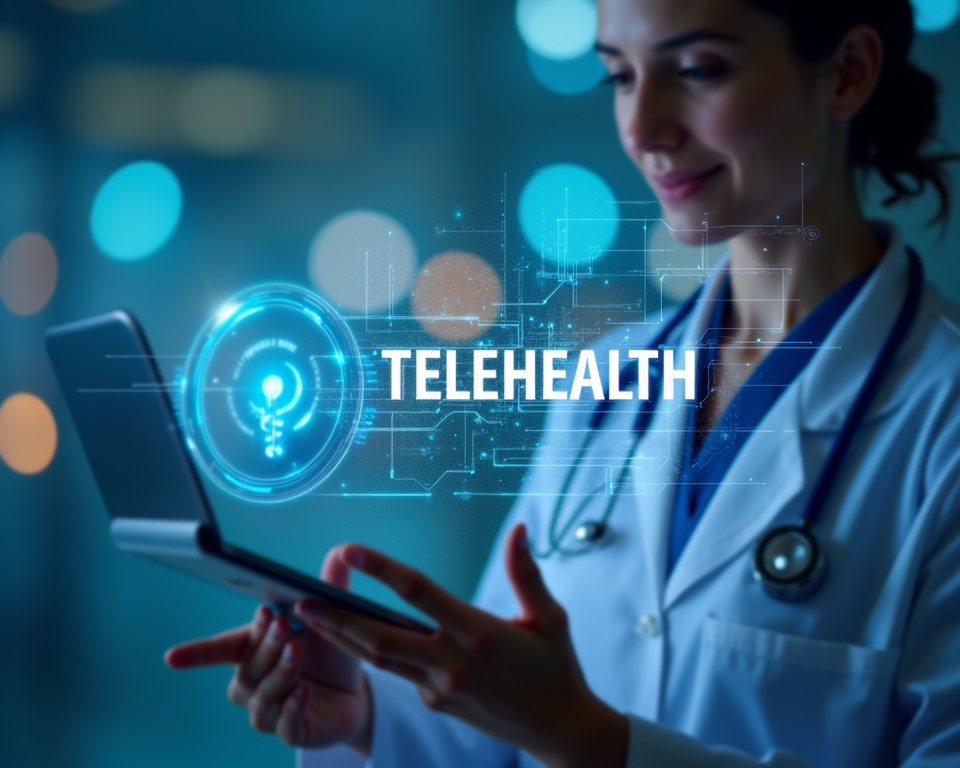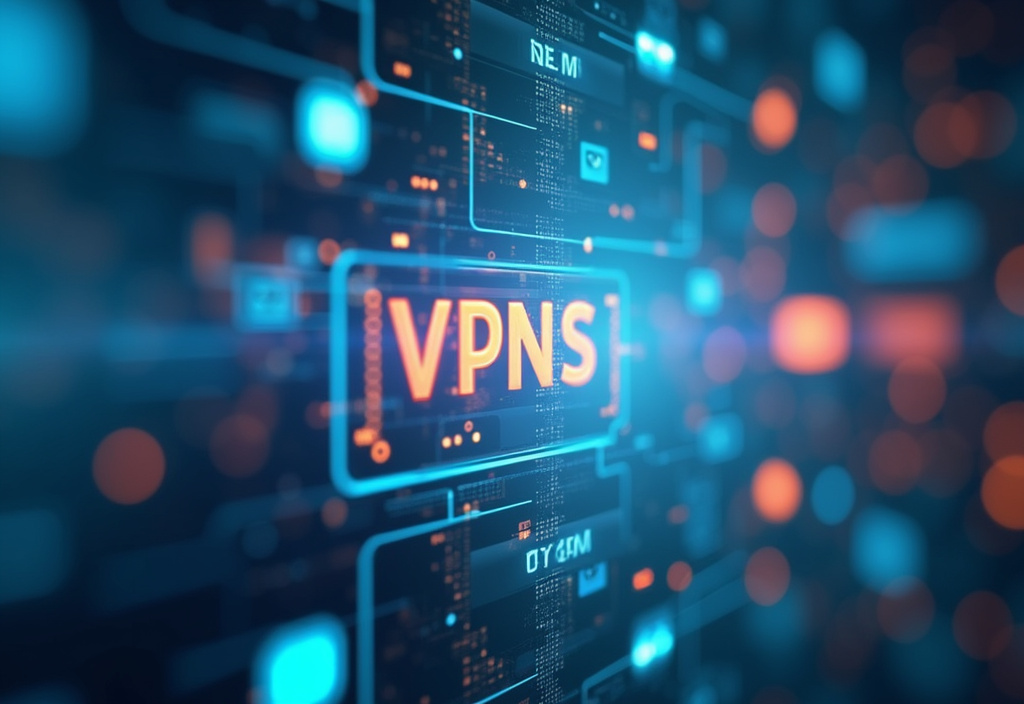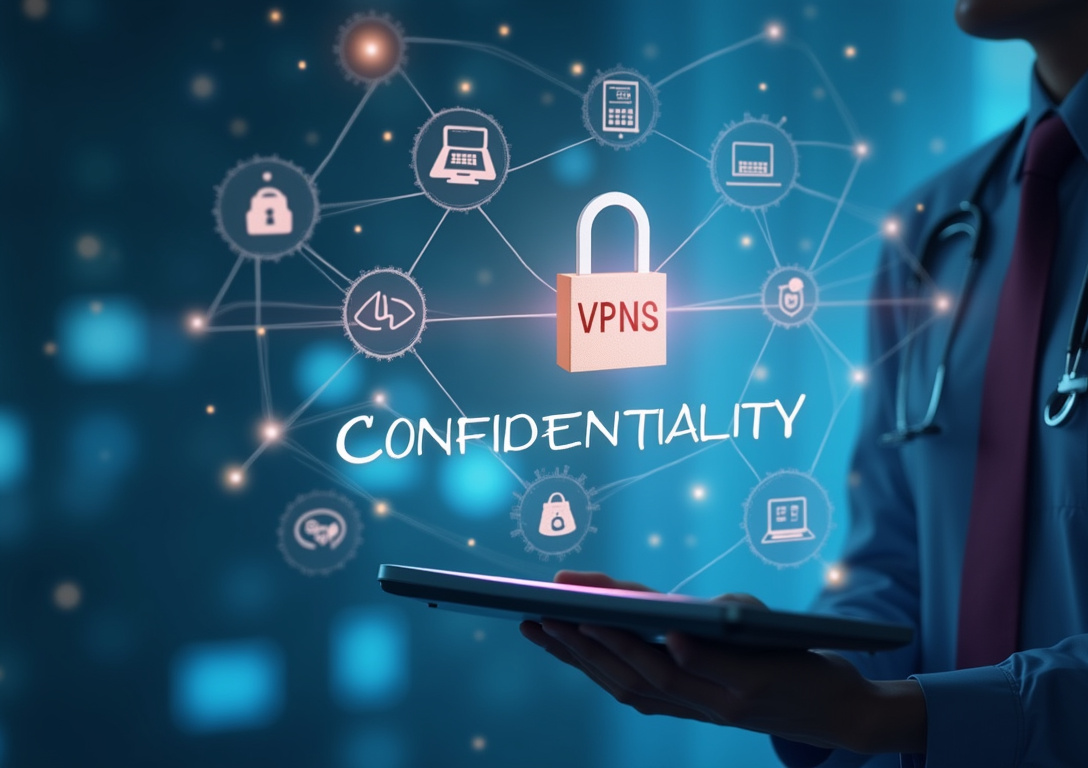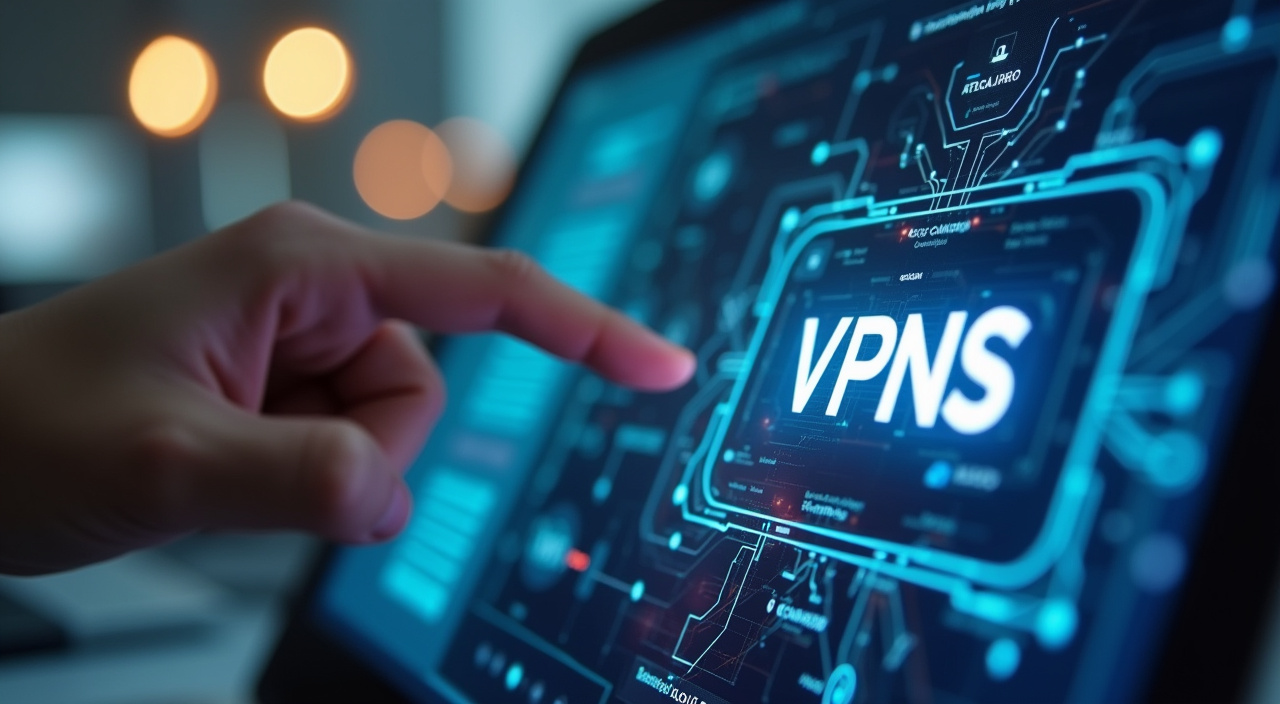VPNs for Healthcare Professionals: Ensuring Data Privacy
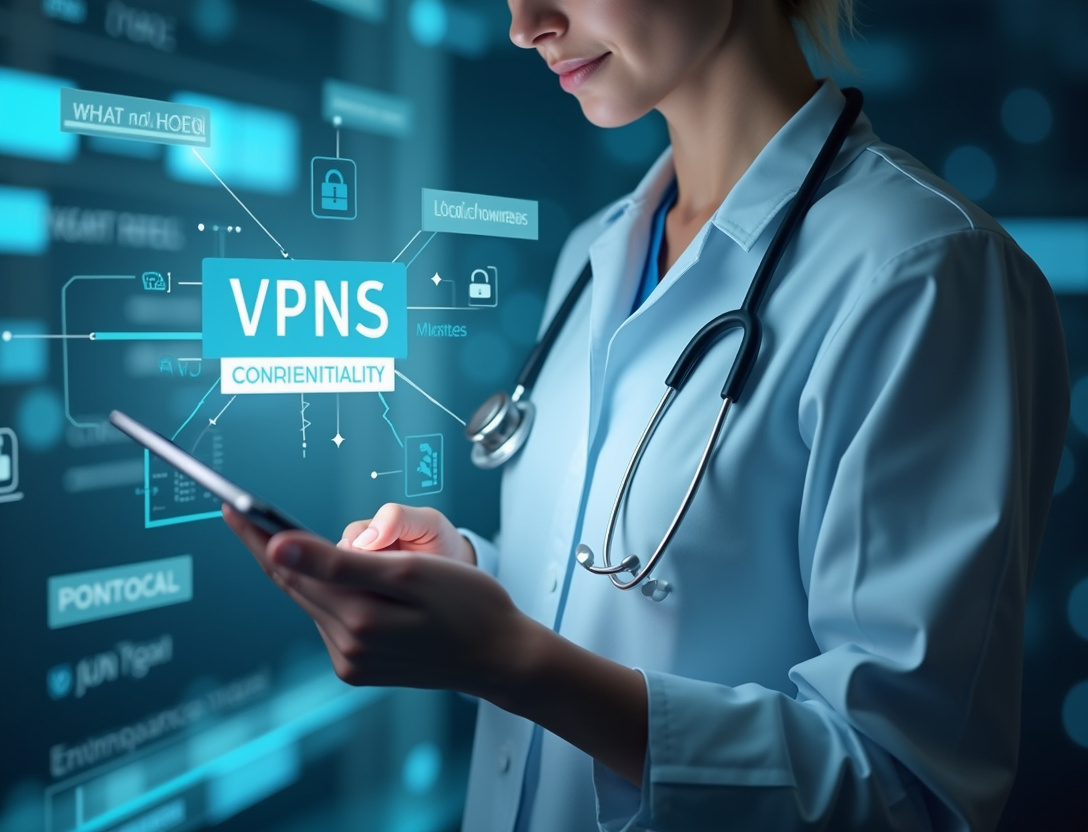
Table of Contents
VPNs for Community Health Services: Securing Patient Interactions
In the intricate web of modern healthcare, the safeguarding of patient information has emerged as a critical imperative. The digital transformation of medical practices, characterized by the widespread adoption of electronic health records (EHRs), telemedicine platforms, and remote monitoring devices, has simultaneously revolutionized patient care and magnified the vulnerability of sensitive data. The increasing reliance on interconnected systems and the internet has expanded the attack surface, making healthcare organizations prime targets for cyberattacks.
A breach of patient confidentiality can have devastating consequences, ranging from financial losses and legal penalties to reputational damage and, most importantly, the erosion of patient trust. In this context, a healthcare VPN (Virtual Private Network) provides a robust security mechanism, creating a secure and encrypted tunnel for data transmission. This article delves into the crucial role of VPNs in protecting patient confidentiality and ensuring medical data security for healthcare professionals.
A healthcare VPN serves as a secure and encrypted connection between a healthcare professional's device and the internet. It functions by masking the user's IP address, effectively anonymizing their online activity, and encrypting all data transmitted through the VPN server. This encryption transforms sensitive information into an unreadable format, rendering it unintelligible to unauthorized parties who might attempt to intercept it.
The importance of a VPN in healthcare extends beyond simple encryption; it encompasses a wide range of benefits that contribute to a more secure and compliant environment. Consider the scenario of a doctor accessing patient records from a coffee shop using public Wi-Fi. Without a VPN, the data transmitted between the doctor's device and the EHR system is vulnerable to interception by hackers lurking on the same network.
These hackers can easily capture unencrypted data, gaining access to sensitive patient information such as medical history, diagnoses, and treatment plans. A VPN encrypts this data, rendering it useless to attackers, effectively preventing data breaches. Furthermore, a VPN enables secure access to geographically restricted resources.
Many healthcare systems require access to specific databases or servers that are only accessible from within a designated network. A VPN allows healthcare professionals to securely connect to these networks from remote locations, ensuring that they have access to the resources they need to provide quality care. Another critical advantage of VPNs is their facilitation of secure collaboration among healthcare teams.
Medical professionals often need to share sensitive patient information with colleagues, specialists, and other healthcare providers. A VPN provides a secure channel for these collaborations, ensuring that patient data remains protected during transmission. This is particularly important in telemedicine, where remote consultations and virtual care require the secure exchange of patient information.
In addition to these functional benefits, VPNs also contribute to compliance with regulations like HIPAA (Health Insurance Portability and Accountability Act). HIPAA mandates that healthcare providers implement technical safeguards to protect electronic protected health information (ePHI). By encrypting data in transit and providing secure remote access, VPNs help healthcare organizations meet these stringent requirements.
Selecting the appropriate healthcare VPN requires careful evaluation of several key factors, including encryption strength, server locations, logging policies, and compliance certifications. Healthcare providers should prioritize VPNs that offer robust encryption protocols such as AES-256, a wide range of server locations to optimize performance, and a strict no-logs policy to ensure patient confidentiality. Establishing a VPN for doctors and other healthcare professionals is a critical step towards fortifying medical data security.
It is essential to recognize that the digital world presents growing threats and that a VPN is more than just a piece of technology; it's a vital shield safeguarding patient confidentiality, promoting secure communication, and upholding the ethical responsibilities of healthcare providers.
VPNs for Digital Health Platforms: Ensuring Secure Patient Access
Choosing the right healthcare VPN service involves a thorough assessment of various features and capabilities. Not all VPNs are created equal, and some are better suited for the specific needs of healthcare providers than others. One of the primary considerations is the level of encryption offered by the VPN.
Advanced Encryption Standard (AES) with a 256-bit key (AES-256) is widely regarded as the gold standard for encryption, providing virtually impenetrable protection against brute-force attacks. Healthcare providers should ensure that their chosen VPN employs AES-256 or a similarly robust encryption protocol to safeguard patient data. AES-256 works by using a symmetric-key algorithm that encrypts data in 128-bit blocks using a 256-bit key.
This key size makes it computationally infeasible for attackers to crack the encryption, even with advanced computing resources. Therefore, a VPN that utilizes AES-256 provides a strong foundation for protecting sensitive patient information from unauthorized access. Another crucial factor is the location and number of VPN servers.
A VPN with a wide network of servers allows healthcare professionals to connect to servers that are geographically close to their location, resulting in faster and more reliable connections. The proximity of the VPN server to the user's location minimizes latency, which can be particularly important for real-time applications such as telemedicine. Additionally, having servers in multiple countries can provide flexibility in accessing geographically restricted resources and bypassing censorship.
For example, a healthcare provider may need to access a medical database that is only available in a specific country. A VPN with servers in that country would allow the provider to securely access the database from anywhere in the world. Privacy is paramount when dealing with patient data, so healthcare providers should carefully review the logging policies of VPN providers.
A strict no-logs policy ensures that the VPN provider does not retain any records of user activity, including browsing history, IP addresses, and timestamps. This is essential for maintaining patient confidentiality and protecting against potential data breaches. Some VPN providers claim to have a no-logs policy, but it's important to verify this claim by reviewing their privacy policy and looking for independent audits.
A reputable VPN provider will have a transparent privacy policy and will regularly undergo audits by third-party security firms to ensure that they are adhering to their no-logs policy. In addition to encryption and logging policies, healthcare providers should also consider the security features offered by the VPN. Features such as a kill switch, which automatically disconnects the internet connection if the VPN connection drops, can prevent data from being exposed in the event of a VPN outage.
A kill switch acts as a fail-safe mechanism, ensuring that sensitive data is never transmitted over an unencrypted connection. DNS leak protection is another important feature that prevents DNS queries from being sent to the user's ISP, which could potentially reveal their browsing activity. DNS leak protection ensures that all DNS queries are routed through the VPN server, preventing the ISP from tracking the user's online activity.
Furthermore, healthcare VPNs should offer support for various VPN protocols, such as OpenVPN, IKEv2/IPsec, and WireGuard. These protocols offer different trade-offs between speed, security, and compatibility, and healthcare providers should choose the protocol that best suits their needs. OpenVPN is widely regarded as the most secure and versatile protocol, while IKEv2/IPsec is known for its speed and stability on mobile devices.
WireGuard is a relatively new protocol that offers a combination of speed, security, and ease of use. The choice of VPN protocol depends on the specific requirements of the healthcare provider. For example, if security is the top priority, OpenVPN would be the preferred choice.
If speed and stability on mobile devices are more important, IKEv2/IPsec would be a better option. By carefully considering all of these factors, healthcare providers can select a healthcare VPN service that provides robust security, reliable performance, and strong privacy protection.
VPNs for Healthcare Professionals: Ensuring Data Privacy
Implementing a healthcare VPN effectively requires a comprehensive approach that encompasses both technical configuration and user education. Simply installing a VPN client on a device is not enough to ensure adequate data privacy and medical data security. Healthcare organizations must develop clear policies and procedures for VPN usage, outlining acceptable use cases, security protocols, and employee responsibilities.
These policies should be integrated into the organization's overall security framework and regularly reviewed to adapt to evolving threats and regulatory changes. The first step in implementing a healthcare VPN is to configure the VPN client software on all devices used by healthcare professionals. This includes desktops, laptops, tablets, and smartphones.
The VPN client should be configured to automatically connect to the VPN server whenever the device is connected to the internet, especially when using public Wi-Fi networks. Multi-factor authentication (MFA) should be enabled for all VPN accounts to add an extra layer of security. MFA requires users to provide two or more verification factors to access the VPN, such as a password and a one-time code generated by a mobile app.
This significantly reduces the risk of unauthorized access, even if a user's password is compromised. In addition to configuring the VPN client, healthcare organizations should also configure their firewalls to allow VPN traffic. Firewalls act as a barrier between the organization's network and the outside world, blocking unauthorized access.
The firewall should be configured to allow traffic from the VPN server to the organization's network, while blocking all other incoming traffic. This ensures that only users who are connected to the VPN can access the organization's resources. Regular security audits should be conducted to ensure that the VPN is functioning correctly and that there are no vulnerabilities.
These audits should include penetration testing, which simulates a cyberattack to identify weaknesses in the VPN implementation. Any vulnerabilities that are identified should be promptly addressed. User education is a critical component of a successful healthcare VPN implementation.
Healthcare professionals should be trained on the importance of using a VPN, the risks of connecting to public Wi-Fi networks without a VPN, and the organization's VPN policies and procedures. The training should also cover how to recognize and report phishing attacks and other social engineering attempts that could compromise VPN credentials. The training should be reinforced through regular reminders and updates.
Healthcare organizations should consider using simulated phishing attacks to test employees' awareness of phishing tactics. Employees who fall for the simulated phishing attacks should be provided with additional training. It is important to establish clear guidelines for acceptable VPN usage.
These guidelines should specify what types of activities are permitted while connected to the VPN, such as accessing patient records, collaborating with colleagues, and attending virtual meetings. The guidelines should also prohibit activities that are not related to work, such as streaming videos or playing online games. Regular monitoring of VPN usage can help to detect and prevent unauthorized activities.
This monitoring should be conducted in accordance with applicable privacy laws and regulations. Any suspicious activity should be investigated promptly. The implementation of a healthcare VPN is an ongoing process.
Healthcare organizations must stay informed about the latest security threats and VPN best practices. They should regularly review and update their VPN policies and procedures to ensure that they are effective in protecting patient data. By taking a comprehensive approach to healthcare VPN implementation, healthcare organizations can significantly reduce their risk of data breaches and ensure the privacy and security of patient information.
This involves not only technical configuration but also a strong emphasis on user education and ongoing monitoring.
VPNs for Services: Enhancing Online Platform Security and Privacy
The integration of a VPN solution within the broader framework of healthcare data security necessitates a holistic approach that encompasses technological safeguards, administrative policies, and a culture of security awareness. A VPN, while a powerful tool, is not a silver bullet; it functions optimally when combined with other security measures to create a layered defense against cyber threats. This layered approach should include robust access controls, data encryption at rest, intrusion detection systems, and regular security assessments.
Access controls are crucial for limiting access to sensitive patient data to only authorized personnel. This involves implementing strong password policies, using multi-factor authentication (MFA), and regularly reviewing user access privileges. Role-based access control (RBAC) is a particularly effective approach, where users are granted access based on their job function and responsibilities.
For instance, a nurse may have access to patient medical records, while a billing clerk may have access to patient billing information. Data encryption at rest is essential for protecting data that is stored on servers, databases, and other storage devices. Encryption at rest ensures that even if a storage device is stolen or compromised, the data remains unreadable to unauthorized parties.
Full-disk encryption (FDE) is a common method for encrypting entire storage devices, while file-level encryption can be used to encrypt specific files or folders. Intrusion detection systems (IDS) monitor network traffic for malicious activity and alert security personnel when suspicious behavior is detected. IDSs can detect a variety of attacks, including malware infections, brute-force attacks, and denial-of-service attacks.
Regular security assessments are necessary to identify vulnerabilities in the healthcare organization's security posture. These assessments should include vulnerability scans, penetration testing, and security audits. Vulnerability scans identify known vulnerabilities in software and hardware, while penetration testing simulates a cyberattack to identify weaknesses in the organization's defenses.
Security audits review the organization's security policies and procedures to ensure that they are effective. Beyond these technical measures, administrative policies play a critical role in ensuring healthcare data security. These policies should cover a range of topics, including data privacy, data retention, incident response, and disaster recovery.
The data privacy policy should outline the organization's commitment to protecting patient data and complying with applicable privacy laws, such as HIPAA. The data retention policy should specify how long patient data is stored and how it is disposed of when it is no longer needed. The incident response policy should outline the steps to be taken in the event of a data breach or other security incident.
The disaster recovery policy should outline the steps to be taken to restore data and systems in the event of a disaster, such as a fire or flood. A culture of security awareness is essential for fostering a proactive approach to data security. All healthcare professionals should be trained on the importance of data security and their role in protecting patient information.
This training should cover topics such as password security, phishing awareness, social engineering, and data breach prevention. The training should be reinforced through regular reminders and updates. Healthcare organizations should also encourage employees to report any suspicious activity that they observe.
Regular communication and collaboration between IT staff, security personnel, and healthcare professionals are essential for maintaining a strong security posture. By fostering a culture of security awareness, healthcare organizations can empower their employees to become active participants in protecting patient data. The integration of a healthcare VPN into this broader security ecosystem requires careful consideration.
A VPN should be viewed as one component of a comprehensive security strategy, rather than a standalone solution. By combining a VPN with other security measures and fostering a culture of security awareness, healthcare organizations can significantly reduce their risk of data breaches and ensure the privacy and security of patient information. This integrated approach is crucial for protecting patient confidentiality and maintaining trust in the healthcare system.
In conclusion, the adoption of VPNs for healthcare professionals is no longer a luxury but a necessity in the contemporary digital landscape. The increasing sophistication of cyber threats, coupled with the stringent regulatory requirements surrounding patient data privacy, demands a proactive and robust approach to medical data security. A well-implemented healthcare VPN, when integrated within a comprehensive security framework, provides a crucial layer of protection for sensitive patient information, ensuring confidentiality, integrity, and availability.
The multifaceted benefits of a healthcare VPN extend beyond mere data encryption. It facilitates secure remote access to geographically restricted resources, enables secure collaboration among healthcare teams, and provides a layer of anonymity that reduces the risk of targeted cyberattacks. By masking IP addresses and encrypting internet traffic, VPNs protect against eavesdropping, man-in-the-middle attacks, and other malicious activities that can compromise patient data.
However, the effectiveness of a VPN hinges on several critical factors, including the strength of encryption protocols, the breadth of server networks, the rigor of logging policies, and the adherence to industry best practices. Healthcare organizations must carefully evaluate these factors when selecting a VPN provider, prioritizing those that offer robust security features, transparent privacy policies, and reliable performance. AES-256 encryption should be the minimum standard, coupled with a strict no-logs policy to ensure that user activity is not tracked or stored.
The VPN provider should also offer a wide range of server locations to optimize performance and provide flexibility in accessing geographically restricted content. Moreover, the implementation of a healthcare VPN requires more than just installing a client on a device. It necessitates the development of clear policies and procedures for VPN usage, including acceptable use guidelines, security protocols, and employee responsibilities.
These policies should be integrated into the organization's overall security framework and regularly reviewed to adapt to evolving threats and regulatory changes. User education is paramount. Healthcare professionals must be trained on the importance of using a VPN, the risks of connecting to public Wi-Fi networks without a VPN, and the organization's VPN policies.
This training should be reinforced through regular reminders and updates to ensure that employees remain vigilant and aware of potential security threats. A VPN should not be viewed as a standalone solution but rather as one component of a comprehensive security strategy. This strategy should encompass robust access controls, data encryption at rest, intrusion detection systems, and regular security assessments.
Access controls limit access to sensitive data to only authorized personnel, while data encryption at rest protects data that is stored on servers and other storage devices. Intrusion detection systems monitor network traffic for malicious activity, and regular security assessments identify vulnerabilities in the organization's security posture. By integrating a healthcare VPN into this broader security ecosystem, healthcare organizations can create a layered defense against cyber threats, minimizing the risk of data breaches and ensuring the privacy and security of patient information.
Ultimately, investing in a robust healthcare VPN solution is an investment in patient trust, regulatory compliance, and the long-term sustainability of the healthcare organization. In an era where data breaches are becoming increasingly common and sophisticated, the protection of patient data is not just a legal requirement but also an ethical imperative. By embracing VPN technology and fostering a culture of security awareness, healthcare providers can safeguard patient confidentiality, maintain the integrity of medical data, and build a more secure and trustworthy healthcare system for all.
The journey towards secure healthcare requires a continuous commitment to innovation, adaptation, and collaboration. As cyber threats evolve, healthcare organizations must remain vigilant and proactive in their efforts to protect patient data. VPNs are not a static solution; they must be continuously monitored, updated, and refined to meet the ever-changing challenges of the digital landscape.
Stay Updated
Get the latest VPN news, tips, and exclusive deals to your inbox.
